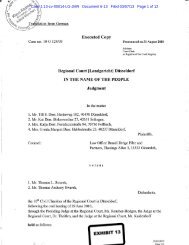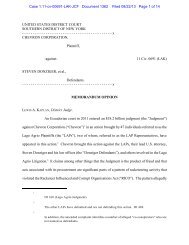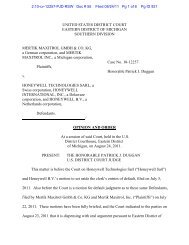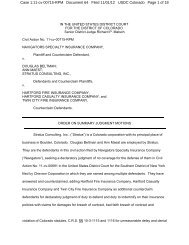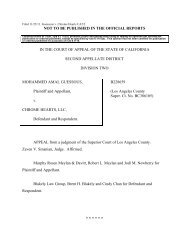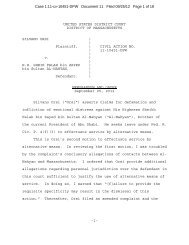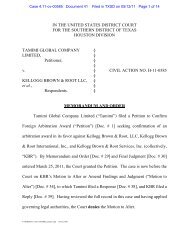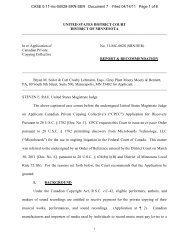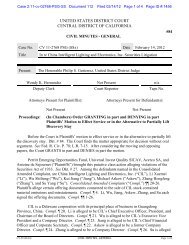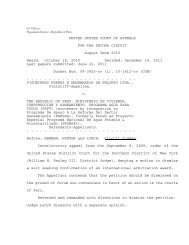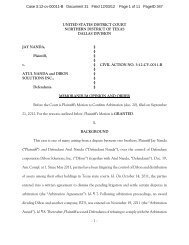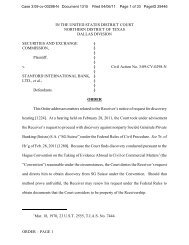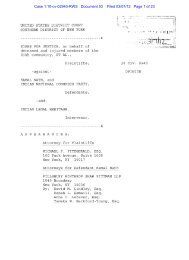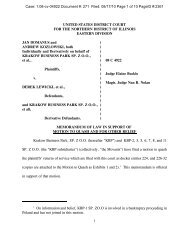UNITED STATES DISTRICT COURT FOR THE ... - Letters Blogatory
UNITED STATES DISTRICT COURT FOR THE ... - Letters Blogatory
UNITED STATES DISTRICT COURT FOR THE ... - Letters Blogatory
Create successful ePaper yourself
Turn your PDF publications into a flip-book with our unique Google optimized e-Paper software.
The Intervenors seek to challenge the Government’s “unduly intrusive or burdensome”<br />
request and “unreasonable or oppressive” actions or inactions in light of proceedings which<br />
the Intervenors posit will not take place. The Intervenors’ rights arise, then, under domestic<br />
law, namely the implementation of the US-UK MLAT through the filter of 18 U.S.C. §3512.<br />
The US-UK MLAT neither extinguishes the Intervenors’ rights under domestic law, nor<br />
permits the Government to circumvent the Federal Rules in its pursuit of a Subpoena<br />
requests.<br />
Case 1:11-mc-91078-WGY Document 31 Filed 12/05/11 Page 4 of 21<br />
Indeed, despite the Government’s assertions to the contrary, it is clear that Congress<br />
never intended for the US-UK MLAT to create a class of super-subpoena, impervious to<br />
judicial review. Rather, the limits on a private right of action pursuant to the US-UK MLAT<br />
must, by plain reading of the treaty provisions, be limited solely to those documents and<br />
materials which the MLAT parties already have in their custody and control, and cannot,<br />
without judicial authority, fetter private documents in the custody of third parties. These may<br />
only be obtained by subpoena, subject to the Federal Rules.<br />
The prohibition on a private right of action in the US-UK MLAT is also more limited in<br />
its application than the Government proposes in that it is “aimed specifically at [criminal]<br />
defendants, to prevent them from making MLAT requests.” See R. N. Lyman, Compulsory<br />
Process in a Globalized Era: Defendant Access to Mutual Legal Assistance Treaties, 47:1<br />
Virginia Journal of International Law, p. 266 (Fall 2006). See also, United Kingdom v. U.S.,<br />
238 F.3d 1312, 1314 (11th Cir. 2001) [There is no provision for private parties, such as<br />
individual criminal defendants in the English (or American) courts, to request the production<br />
of information. See MLAT, art. 1, 3.” (emphasis added)]; In Re Lavan (E.D.Cal. 3-23-<br />
2011) *6 (“The MLAT with the United Kingdom specifically excluded criminal defendants<br />
from the ability to request production of information.”) [Emphasis added].<br />
4



